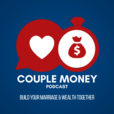
Summary: I just finished up a Q&A session today. It’s a more informal and much shorter than the usual weekly episode (I recorded this in the home office while my little one playing in her room).<br> The first episode of Couple Money was released this week and I’ve gotten some wonderful feedback from you. I’m using your suggestions for this week’s episode.<br> <br> <br> * Subscribe on iTunes: Simply <a href="https://itunes.apple.com/us/podcast/couple-money-podcast-build/id924656111">click on this link</a> and you’ll be taken to Couple Money’s page where you can subscribe.<br> * Subscribe on Stitcher: Please <a href="http://www.stitcher.com/s?fid=54457&refid=stpr">click here</a> so you can catch all episodes.<br> <br> Thank you so much for the words of encouragement and the questions you’ve sent my way.<br> Speaking of questions, I thought having a Q&A would be a wonderful way to interact with you (besides the regular episodes and these posts). This session covers two questions about paying debt faster.<br> How did you decide on those 5 steps for paying debt off faster?<br> Just a reminder, the five steps I mentioned last week were:<br> <br> * Know How Deep Your Debt Is<br> * Review Debt Methods as a Couple<br> * Choose the Method that is Easiest to Keep<br> * Build Up Your Debt Payments<br> * Make It Automatic<br> <br> When I was choosing the steps I was considering a few things. I wanted to get the essentials done and I wanted to make each step a manageable bite.<br> When changing habits, I want to make it as easy for you to succeed. (If you’re familiar with Tim Ferriss’ book, <a href="http://www.amazon.com/4-Hour-Chef-Cooking-Learning-Anything/dp/0547884591/ref=sr_1_1?ie=UTF8&qid=1412028696&sr=8-1&keywords=4+hour+chef">The Four Hour Chef</a>, you may remember him discussing deconstruction and selection in the meta-learning section.)<br> It’s my hope that cutting it down to only what is absolutely vital will get you over the hurdle and out of debt.<br> The second question:<br> Looking at the numbers, the debt avalanche the faster method of paying off debt. Why would you put the debt snowball as an equal option to it?<br> I love this because it gets into the purpose and intentions of this podcast. My goal for Couple Money is to help you two develop an effective financial system that fits within your personalities.<br> Going back to the Four Hour Chef for a second, Tim shared how he worked through analyzing different methods of learning a new language and eventual new skills.<br> It boiled down to two questions:<br> <br> * Is this method effective?<br> * Is this method sustainable?<br> <br> Effective Method<br> Both the debt snowball and the debt avalanche/stack have helped people become debt free. Dave Ramsey has been hosting a highly popular personal finance radio show and one of the highlights is when people call in to announce they are debt free.<br> Sustainable Method<br> Put simply – how likely you are you going to keep at using the method?<br> Dave Ramsey likes to say that ‘Personal finance is 20% head knowledge and 80% behavior.’ I agree – most people get into financial trouble, not because they don’t understand numbers, but they’ve developed habits that have made it easy for them to slip into debt.<br> If that’s you, then one of the major hurdles you have to overcome is to change your behavior.<br> Easier said than done.<br> How many times have we said you’re going to get better with the budget, get in shape, or pick up a new hobby?<br> One of the best motivations to help you change a habit is to have quick and real wins. That’s how the debt snowball works – you get rid of your smaller debts upfront and the momentum works in your favor as you keep going until your debts are paid off.<br> And that’s really the goal – paying off your debt.
